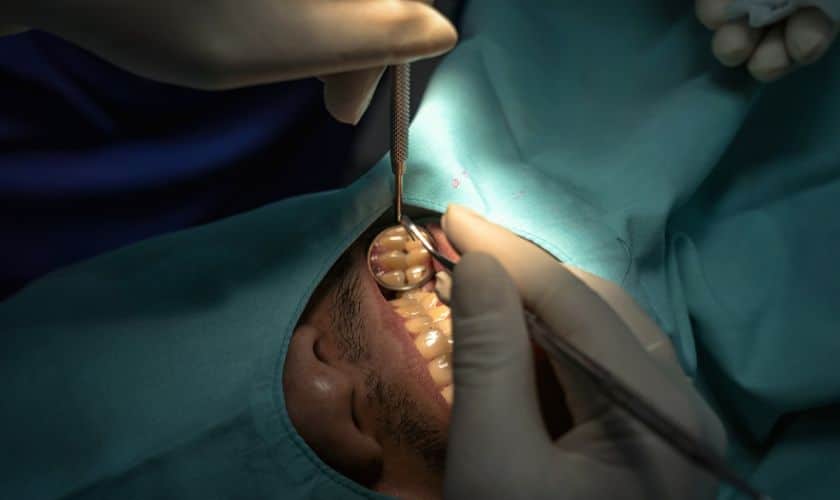Are you experiencing constant pain and discomfort in your jaw? Does it hurt when you chew or talk? If yes, then chances are that you might be suffering from a condition called TMJ disorder. This is a common problem among millions of people worldwide, but the good news is that it can be treated with proper care and treatment. In this blog post, we will explore the benefits of TMJ treatment and how it can help alleviate your symptoms so that you can enjoy life to the fullest once again! So sit back, relax, and let’s dive into the world of TMJ treatment together!
What Is TMJ?
The temporomandibular joint (TMJ) is the point where the lower jawbone meets the skull. It is a ball-and-socket joint that allows the lower jaw to move up and down and side to side.
TMJ disorders are a group of conditions that affect the function of the temporomandibular joint. TMJ disorders can cause pain in your jaw, face, head, neck, or ear. You may also have trouble chewing or swallowing, and you may feel like your jaw is locked or stuck.
The goal of TMJ treatment is to relieve pain and improve the function of the joint. TMJ Treatment options include splint therapy, physical therapy, medications, and surgery.
What Causes TMJ?
There are many potential causes of TMJ, including:
– Teeth grinding or clenching (bruxism)
– Poor dental alignment
– Misaligned jaws
– Jaw joint injury or arthritis
– Stress and teeth clenching during the day
Benefits Of TMJ Treatment
TMJ treatment can provide many benefits for those who suffer from TMJ disorders. Treatment can help to relieve pain, restore function and range of motion to the jaw, and improve the overall quality of life. In some cases, TMJ treatment can also help to prevent further damage to the jaw joint and surrounding tissues.
TMJ treatment often begins with conservative measures such as ice packs, over-the-counter pain medication, and avoiding trigger foods. If these measures do not provide relief, your doctor may recommend more aggressive treatment options such as injections or surgery.
The goal of TMJ treatment is to reduce pain and restore normal function to the jaw. Treatment can vary depending on the severity of your symptoms and the underlying cause of your TMJ disorder. With proper diagnosis and treatment, most people are able to find relief from their symptoms and improve their quality of life.
How To Treat TMJ
If you suffer from TMJ, there are a number of treatments that can help relieve your pain and improve your jaw function. Here are some of the most effective TMJ treatments:
• Muscle Relaxants
Muscle relaxants can help to reduce the muscle spasms that often accompany TMJ.
• Pain Medications
Over-the-counter pain medications such as ibuprofen and aspirin can help to alleviate the pain associated with TMJ.
• Heat Or Ice
Applying heat or ice to the affected area can also help to reduce pain and swelling.
• Jaw Exercises
There are a number of exercises that can help to stretch and strengthen the muscles around the jaw, which can help to reduce TMJ symptoms.
• Bite Plate
A bite plate is a custom-made dental appliance that helps to realign the teeth and jaws, which can often provide relief from TMJ symptoms.
• Surgery
In severe cases of TMJ, surgery may be necessary to correct the problem.
The Bottom Line
TMJ treatment can be a great way to improve the health of your jaw and reduce pain, discomfort, and tension in your face. With proper care from a qualified dentist or orthodontist, you may see significant improvements in the function and appearance of your jaw over time. From better facial symmetry to improved speech patterns, there are many benefits to seeking out TMJ treatment for yourself. If you have been experiencing symptoms that could indicate an issue with your temporomandibular joint, don’t hesitate to seek help from an experienced professional today!
FAQs
If you suffer from TMJ, you know how painful and frustrating the condition can be. Thankfully, there are treatments available that can help alleviate your symptoms and get you back to enjoying your life. In this article, we’ll discuss some of the most frequently asked questions about TMJ treatment so that you can make an informed decision about what’s best for you.
1. How is TMJ diagnosed?
Your doctor will likely ask about your medical history and perform a physical examination of your jaw in order to diagnose TMJ. They may also order X-rays or other imaging tests to get a better look at the joint itself.
2. What are some common treatment options for TMJ?
Treatment for TMJ often begins with conservative measures such as over-the-counter pain relievers and ice packs.
